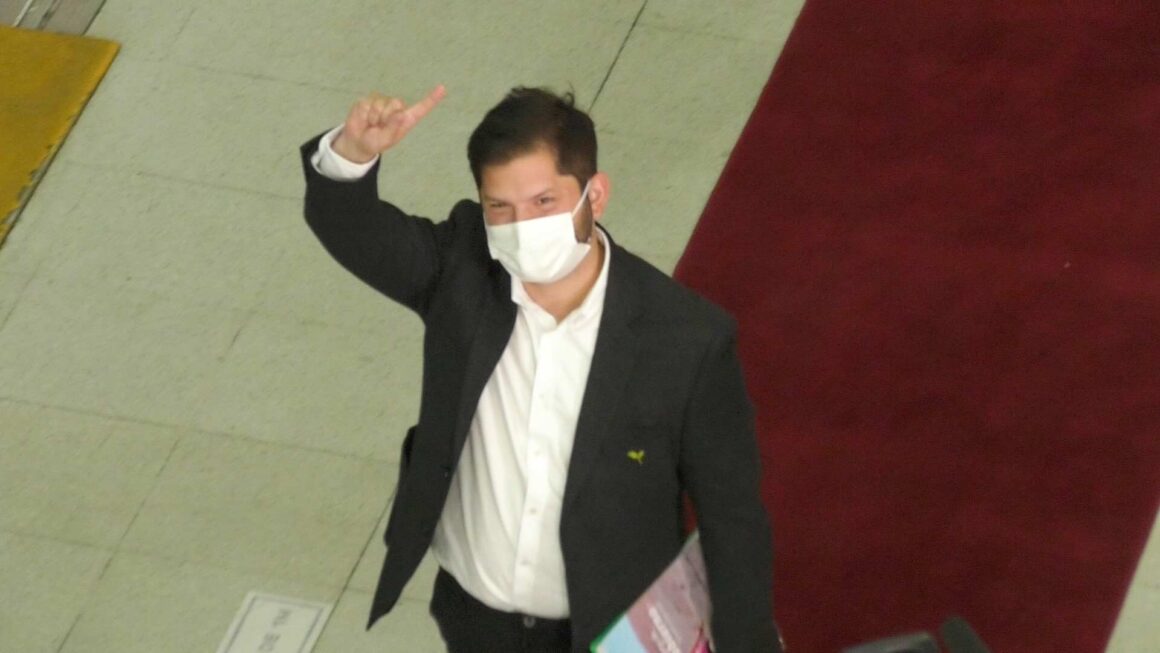

By Dave Stockton
On 19 December 2021, Gabriel Boric defeated José Antonio Kast in the second round of Chile’s presidential election, obtaining 55.9 percent of the votes. Voter turnout, at 55.6 percent, was the highest since the ending of compulsory voting in 2012.
Plainly the threat of a Chilean Bolsonaro mobilised progressive voters, turnout was up by 1.2 million on the first round, to defeat the champion of Pinochet-style dictatorship and neoliberal impoverishment. Although the liberal bourgeois centre ground was crushed in the election, the bourgeois media’s claim that this was a battle between two extremes is untrue. In the case of Kast, yes there was an extreme, but Boric is in effect a fairly middle of the road “democratic socialist”, albeit without a party label.
Nevertheless, as we have written previously, it was completely correct for all those on the left to vote for Boric. Not only did it block the ascent of a vicious right winger to power, but it will also put Boric himself to the test of office. Raising the morale and confidence of his supporters will create the best conditions for the renewal of the mass mobilisation for progressive economic and political demands which will undoubtedly be necessary.
That means not waiting for Boric to decide on the tempo for implementation of his programme and certainly not accepting the compromises we can expect him offer to the right. It means building up and organising the working class and the youth movement that has mobilised huge numbers on the streets since 2019 and laid the basis for sweeping away the Pinochet Constitution and the election of a young “leftist”.
Chileans who can remember Salvador Allende’s presidency (3 November 1970 – 11 September 1973) which ended with his murder and Pinochet’s dictatorship (1973 – 1990) know that electing a leftist government is not the end of the story or the beginning of happier days.
That dictatorship, which Kast regularly praises, was one of the bloodiest of the 1970s. It saw the killing and disappearance of over 3,000, identified by name, the arrest of 28,000 who were subjected to unspeakable tortures and rapes, and it forced 200,000 to flee into exile. Just as in Franco’s Spain and Videla’s Argentina, Pinochet and his legion of killers were never brought to justice and for the same reason, the United States and the Western democracies continued to support these regimes. In Pinochet’s case, this was because he was the first to fully impose the neoliberal policies of the “Chicago Boys”. Henry Kissinger (98), the man behind the 1973 coup, is still alive and loaded with honours, including the Nobel Peace Prize.
Kast’s 44 percent of the vote shows that those who benefited from the dictatorship have not disappeared. Another surviving legacy of those years is a right wing military and police force, no doubt prepared to block any seriously radical programme being enacted. Although economic growth will reach 12 percent this year, after shrinking 5.8 percent in 2020, the OECD points out this is a short term boost from a large stimulus package and expects it to fall to just 2 percent by 2023. No doubt both Chilean and foreign capital will already be planning how to sabotage any progressive policies following Boric’s election.
The danger is, however, that Boric will tread the path of reaching out to Kast’s supporters in the name of healing the rift between Chileans. The price of such compromise will be the dumping of all the radical elements in his programme, especially taxing the richer parts of the population to pay for any meaningful social reforms. This could demoralise and demobilise the mass movements if there is no concerted opposition from the unions and the Left.
On the other hand, should he attempt some serious reforms, we can expect sabotage and disruption from the Chilean ruling classes in Congress and in economic life. The US and its pliant international tools like the IMF will start to accuse Boric of human rights abuses and being a dictator. Chile, although a relatively advanced economy and once called “the oldest democracy in Latin America”, nonetheless remains a semi-colony, potentially subject to sanctions and blockades were it tempted to follow the “Bolivarian” road of a Chavez or a Morales.
The Chilean left, and all progressive and democratic forces that voted for Boric, will need to mobilise once more on the streets and in the workplace, raising their own demands, and ready for absolutely anything from their enemies. More than that, young leftists will have to recover the radical, indeed revolutionary, traditions of the twentieth century and slough off the compromising and pacifist traditions of “democratic socialism”, which Boric is close to. Chilean capitalists, armed with their military and police forces and, standing behind them, the CIA, are real tigers who will not be peacefully robbed of their teeth and their claws by electoral mandates and bourgeois democracy.
Photo credit: Mediabanco Agencia